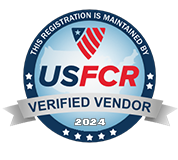Call Your Rep! 4 things you should say to be heard.
So, you have something important to say to your members of congress. Excellent! The message you share and the method you use are both key to your success as an advocate. Message and method make all the difference between being heard-heard…and being sorted by an algorithm into a pile with hundreds of other constituents.
What’s the best way to make my voice heard?
#1 – Phone calls. Hands down, a telephone call is the most effective route. Call your representatives’ D.C. offices and one of their state offices.
Other options:
- Snail Mail. Send a letter to their local office.
Email is easy, but they receive so many messages. To manage the volume, staffers rely on algorithms to lump your message with hundreds more.
Snail mail received at their local office is more likely to be read. If you really must send email, make sure you take the time to personalize it; personal, heartfelt stories aren’t easily grouped with form messages.
- In person. Show up at town hall meetings.
Visit your representatives’ websites or social media pages to learn when they’re holding these face-to-face discussions. There’s strength in numbers! Bring a group of people who are concerned about the same issue.
What about social media? Social media isn’t the best way to connect with your representatives. It’s a convenient way for them to share information, but it’s not effective for two-way communication. Rather, use social media to spread the word to your colleagues and encourage them to make some phone calls.
What should I say? 4 Things.
Here are four things to include every time you contact your representative. And remember to keep your message short, clear, and personal. Be passionate and be polite.
(As an example, we’ve included some speaking points about telehealth rehab services.)
1. Identify yourself as a constituent.
Contact only your representatives. Encourage your colleagues across the US to contact theirs.
“Hello, my name is [NAME]. I’m a constituent calling from [CITY, ZIP].”
2. State the issue.
What’s going on? Why are you concerned?
“I’m concerned about the lack of telehealth rehab services for Medicare patients. The CMS approved reimbursement of telehealth, but rehab therapists aren’t on the list of approved telehealth providers. If they’re not allowed to charge for services, they’re unlikely to offer them.
At-risk communities, including our seniors and the 20% of Americans who live in rural areas, have a more difficult time accessing needed therapy services.”
3. Share a personal story. Here’s where you make it personal and share your passion for the issue.
How does this affect you and people you care for? Provide a true story: What was the situation and how did it affect the outcomes?
“My patients miss appointments when they lack reliable transportation or can’t drive.”“I have patients who skip appointments because they have travel exhaustion from hours of round-trip driving.”“I’m concerned about the poor continuity of care when my patients miss appointments. It results in less-than-optimal outcomes.”“I’m worried about slow or improper healing. It affects my patients’ independence, full recovery, ability to return to work, ability to care for their loved ones, etc.”“There’s an over-reliance on pain medications because the rehab program is on paper, but not supported with virtual access to a therapist.”“Many children don’t have access to quality services because there aren’t enough pediatric therapists in their area.”
4. Tell them what you want them to do.
Tell them to vote (include the bill number) or take a specific position.
“Telehealth brings greater parity to underserved and rural communities. I’m asking [REPRESENTATIVE’S NAME] to support reimbursement of telehealth services for rehab services.
Please vote to change §410.78 Telehealth services. Add Physical Therapists, Occupational Therapists, Hand Therapists, and Speech-Language Therapists to the list of approved providers in paragraph (b)(2) General rule, practitioners.
By increasing access to quality care, therapists also support the MIPS performance category of “Improvement Activities” because they’re able to serve a greater number of patients.
Thank you for taking my call.”
Where do I find contact information for my members of Congress?
There are many places you can find their contact information, including www.USA.gov. One of the easiest is www.whoismyrepresentative.com.
Enter your ZIP code and you’ll have information for your representative and senators. Resist the urge to click the email icon. Remember that automatic grouping of messages? Look for their phone number or local mailing address instead.
Also, please contact only your members of Congress. Don’t clog the communication lines by calling people who don’t represent you.
Other Resources
If you want to learn more about being a citizen advocate, I recommend Call the Halls, by Emily Ellsworth. She worked for Congress for six years in constituent services and knows, first hand, what works and why. This is one of the best guides I’ve read.
You can find an easy-to-share summary here, and the entire guide at https://gumroad.com/l/callthehallsguide.
On behalf of your patients, your colleagues, and everyone at Cedaron…thank you for working with us to increase access to rehabilitation therapy.







